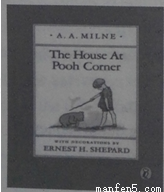题目内容
I am a 17-year-old college student. Something I came across today touched me, so I decided to _____ it.
After a long and boring morning at college, I was _____ at the bus station for my bus. While standing there, I was thinking about how _____ the week had been when this gentleman came and stood next to me. After a while he _____ talking to me, mainly about the buses and bus drivers. He had ____ noticed that I was feeling down, as he told me to cheer up and told a ______. This then turned into a casual ______ as we waited for the bus, which was late _____
He introduced himself to me and told me it was _____ to meet me. Then the bus finally _____ We both got on the bus, and he sat in front of me, and we ______ talking. At this point all my ______ thoughts about the week were starting to _____. He asked me what I was doing at college, and what I was planning to do ____ I graduated. He wished me luck and told me he had his fingers crossed for me.
He then _____ me a piece of paper, with “Ten ideas for kindness” on it and a link to a website. When I got off the bus, he told me that it was a _____ to meet me and he wished me good luck.
I don’t _______ if this very caring man will ever read this article, ___ I want to say that he is the only person who had talked with me _____ for a while, and noticed that I needed cheering up. He made me _____ that life really is worth living.
1.A. report B. share C. describe D. keep
2.A. gathering B. searching. C. waiting D. sitting
3.A. pleasant B. fast C. busy D. terrible
4.A. stopped B. enjoyed C. started D. continued
5.A. nearly B. hardly C. instantly D. obviously
6.A. remark B. suggestion C. joke D. choice
7.A. discussion B. greeting C. conversation D. meeting
8.A. as well B. as usual C. for once D. so far
9.A. punctual B. surprising C. unlucky D. lovely
10.A. started B. left C. arrived D. stopped
11.A. insisted on B. decided on C. carried on D. took on
12.A. serious B. strange C. negative D. careful
13.A. form B. melt C. burst D. disappear
14.A. after B. when C. before D. until
15.A. sent B. tore C. handed D. spread
16.A. pleasure B. pity C. duty D. chance
17.A. expect B. imagine C. doubt D. know
18.A. for B. and C. but D. so
19.A. generally B. quietly C. sincerely D. briefly
20.A. conclude B. realize C. convince D. remind
 A加金题 系列答案
A加金题 系列答案 全优测试卷系列答案
全优测试卷系列答案


